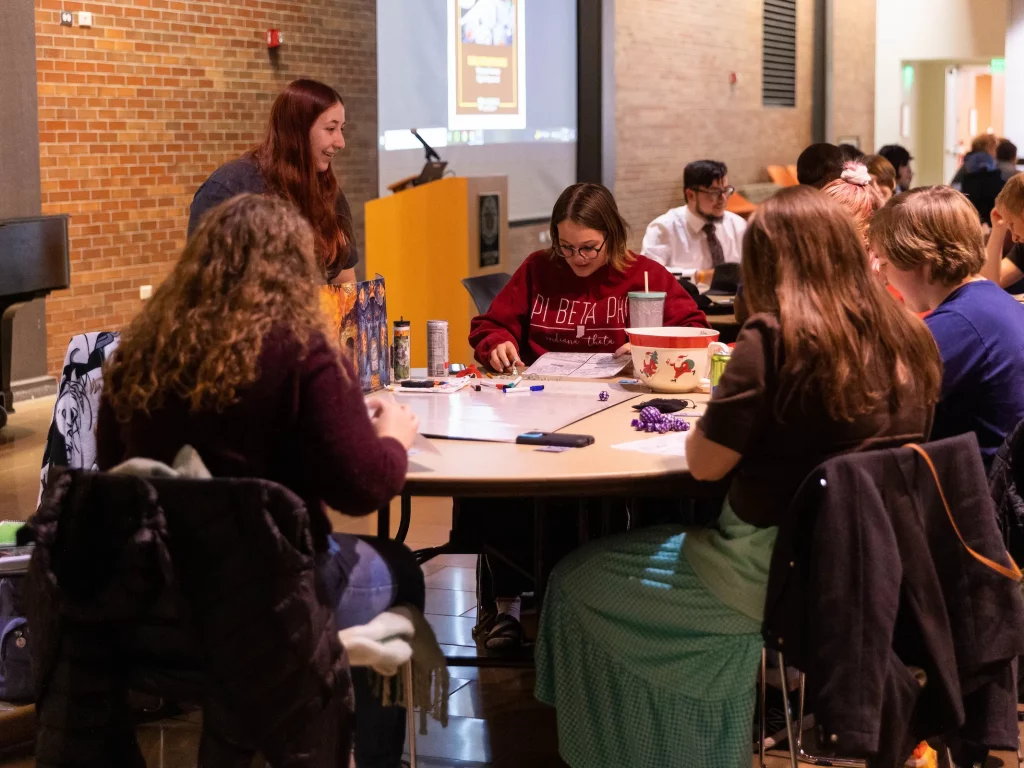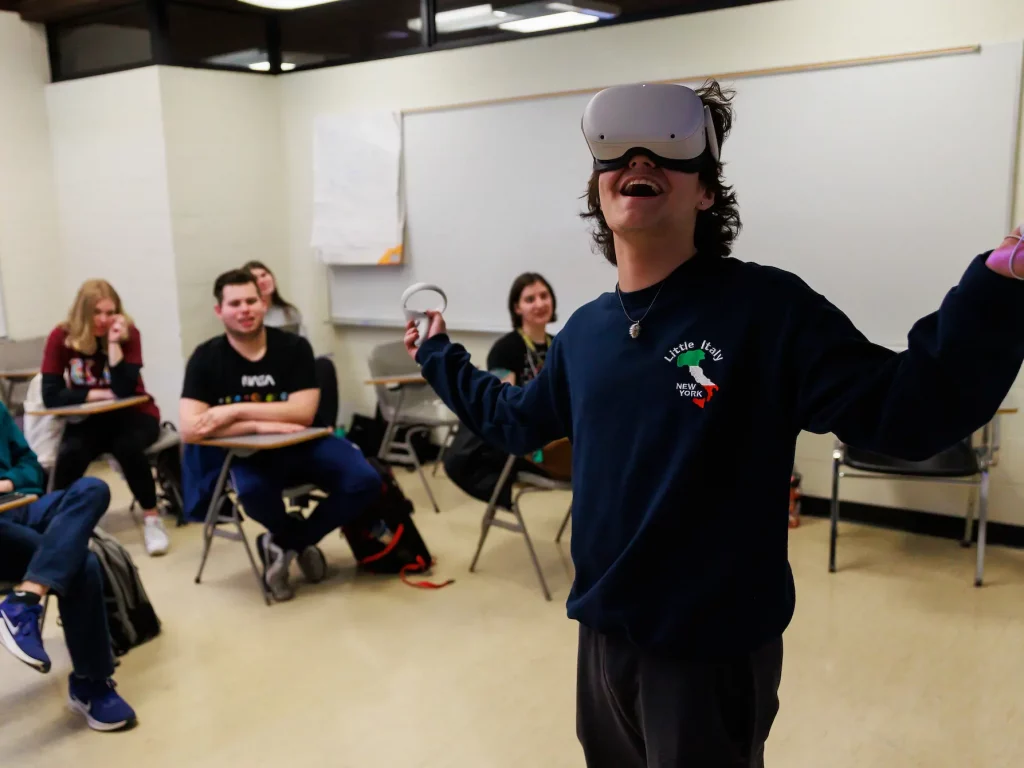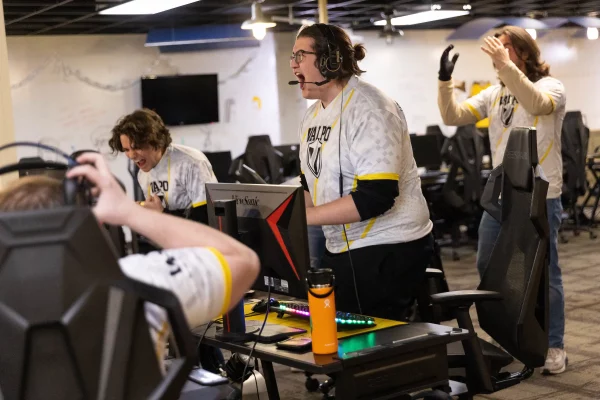Center for Games and Interactive Entertainment
Grand Opening
February 4, 2025
4:30 p.m.
Valparaiso University
Center for the Arts 1412
The Center for Games and Interactive Entertainment will be the heart of gaming culture, education, and professional development on campus, providing state-of-the-art equipment for use by students and faculty alike. This includes a Virtual Reality Arena, a “Couch Co-Op” room for cooperative video gameplay, a video game lab with console and computers providing access to games used in classes, a tabletop library with open gaming space, and a Twitch studio where students can learn to stream games live, becoming part of an emerging entertainment industry with millions of viewers.

The Center will achieve a number of vital objectives:
- Create a community hub for students.
- Connect students to courses and on-campus resources and activities focused on gaming and game design.
- Support student entrepreneurship in game development, including play testing and prototyping materials through the Sirko Maker Space and the College of Engineering.
- Arrange guest speakers and connect with industry.
- Support research and course development in game studies and design.
- Provide pedagogical resources for faculty interested in learning how to incorporate gaming into coursework.
- Provide training and workshops for local k-12 educators.
- Provide a network of student play-testers and designers for local game companies.
BALL VENTURE FUND GRANT TO FUND EQUIPMENT AND MATERIALS FOR THE CENTER
Valparaiso University has been awarded a $25,000 Ball Venture Fund Grant from the Independent Colleges of Indiana to fund the creation of an on-campus Center for Games and Interactive Entertainment.
In 2023, the English and Communication and Visual Arts departments are launching a new minor in Game Narrative and Design.

The Center for Games and Interactive Entertainment is designed to serve both the university and local community.
In addition to bringing together faculty and students from across the campus, the Center will foster collaboration with local school teachers, game designers, and businesses. Programming focused on incorporating games into classroom pedagogy will benefit faculty and regional k-12 teachers, while bringing together students interested in games will assist local independent game designers by providing them engaged play-testers.
